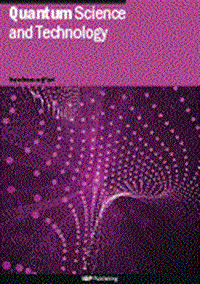Synchronization-induced violation of thermodynamic uncertainty relations
IF 5.6
2区 物理与天体物理
Q1 PHYSICS, MULTIDISCIPLINARY
引用次数: 0
Abstract
Fluctuations affect the functionality of nanodevices. Thermodynamic uncertainty relations (TURs), derived within the framework of stochastic thermodynamics, show that a minimal amount of dissipation is required to obtain a given relative energy current dispersion, that is, current precision has a thermodynamic cost. It is therefore of great interest to explore the possibility that TURs are violated, particularly for quantum systems, leading to accurate currents at lower cost. Here, we show that two quantum harmonic oscillators are synchronized by coupling to a common thermal environment, at strong dissipation and low temperature. In this regime, periodically modulated couplings to a second thermal reservoir, breaking time-reversal symmetry and taking advantage of non-Markovianity of this latter reservoir, lead to strong violation of TURs for local work currents, while maintaining finite output power. Our results pave the way for the use of synchronization in the thermodynamics of precision.同步引起的热力学不确定性关系的违反
波动会影响纳米器件的功能。在随机热力学框架内推导出的热力学不确定性关系(TURs)表明,要获得给定的相对能量电流色散,需要最小量的耗散,也就是说,电流精度需要付出热力学代价。因此,探索违反 TUR 的可能性,尤其是量子系统的 TUR,从而以较低的成本获得精确的电流,是非常有意义的。在这里,我们展示了两个量子谐波振荡器在强耗散和低温条件下,通过耦合到一个共同的热环境而实现同步。在这种情况下,与第二个热库的周期性调制耦合打破了时间反转对称性,并利用了后一个热库的非马尔可夫性,导致局部功电流强烈违反 TUR,同时保持有限的输出功率。我们的研究结果为在精密热力学中使用同步技术铺平了道路。
本文章由计算机程序翻译,如有差异,请以英文原文为准。
求助全文
约1分钟内获得全文
求助全文
来源期刊

Quantum Science and Technology
Materials Science-Materials Science (miscellaneous)
CiteScore
11.20
自引率
3.00%
发文量
133
期刊介绍:
Driven by advances in technology and experimental capability, the last decade has seen the emergence of quantum technology: a new praxis for controlling the quantum world. It is now possible to engineer complex, multi-component systems that merge the once distinct fields of quantum optics and condensed matter physics.
Quantum Science and Technology is a new multidisciplinary, electronic-only journal, devoted to publishing research of the highest quality and impact covering theoretical and experimental advances in the fundamental science and application of all quantum-enabled technologies.
 求助内容:
求助内容: 应助结果提醒方式:
应助结果提醒方式:


